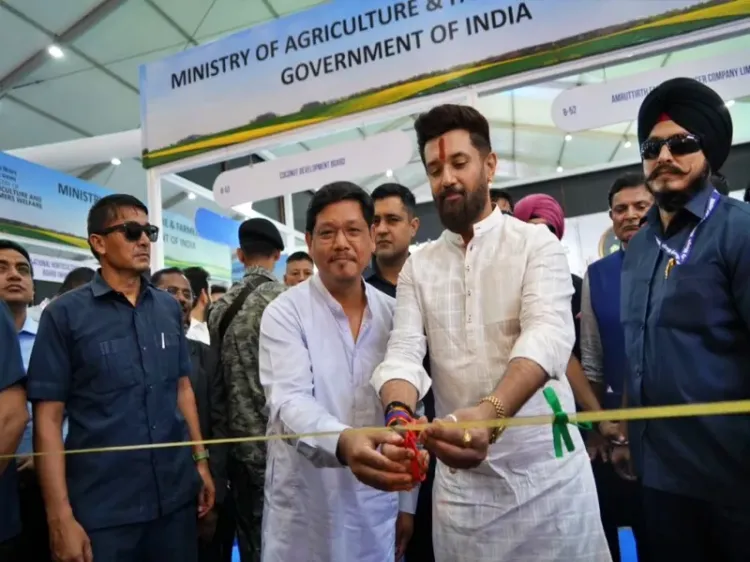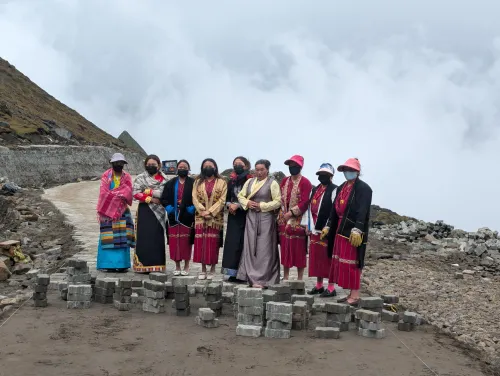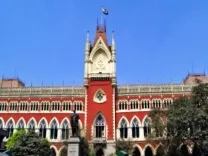How is Meghalaya Pioneering Organic Farming at World Food India?

Synopsis
Key Takeaways
- Meghalaya's Pavilion at WFI highlights its organic farming initiatives.
- Community-driven partnerships are essential for the state's agricultural transformation.
- The Organic Mission 2024-28 aims for significant hectares certified by 2028.
- Strategic MoUs with major retailers boost market access.
- Meghalaya aims to become a key player in the global food market.
New Delhi, Sep 26 (NationPress) Meghalaya showcased its rapidly advancing farm-to-market ecosystem at the World Food India (WFI), the nation's premier food processing exhibition held at Bharat Mandapam in the capital, officials disclosed on Friday.
The event commenced on Thursday and will wrap up on Saturday.
As a Focused State, Meghalaya unveiled its dedicated pavilion, highlighting flagship initiatives, export-focused value chains, and community-centric processing models that are transforming the state into a significant organic food hub, according to a statement.
The event, inaugurated by Prime Minister Narendra Modi, has attracted policymakers, global investors, agri-tech innovators, and leading food industries from over 90 nations.
Spanning 100,000 sq. meters with more than 2,000 exhibitors, WFI 2025 emphasizes India's aspiration to become a Global Food Hub.
Union Food Processing Minister Chirag Paswan, along with Meghalaya Chief Minister Conrad K. Sangma, officially launched the Meghalaya Pavilion, which showcased the state's natural wealth and expanding investment landscape.
The ongoing Organic Mission 2024-28 aims to certify one lakh hectares under organic cultivation by 2028, with ₹250 crore allocated to enhance production. So far, 24,000 hectares have been certified and over 40,000 farmers integrated into organic value chains.
An official statement indicated that Meghalaya’s transformation is being driven by the Community Public Private Partnership (CPPP) model, merging community ownership, government investment, and private technology.
Currently, eight PRIME Hubs are operational, with investments exceeding ₹220 crore, processing 6,000 kg of produce, benefiting 15,000 farmers, and creating over 1,500 jobs.
The state plans to expand this network to 55 hubs by 2032, along with 40 large units and 540 micro-units.
A new umbrella brand, Meghalaya Collectives – Organic, was introduced to unify Lakadong turmeric, Khasi mandarin, Sohiong, and Kew pineapple under a traceable, market-ready identity. This initiative aims to boost farmer incomes and elevate the state’s profile in premium domestic and international markets,” it stated.
To further this initiative, four MoUs were signed with Lulu Group Retail, The Staple Kaka, Plantrich Agri Tech, and Treta Agro (Just Organic), establishing market linkages across GCC countries and major Indian cities.
Since 2022, Meghalaya has been exporting consignments of organic pineapples, mandarins, and ginger to Middle Eastern markets, including Dubai’s Lulu Hypermarket.
A senior official remarked that with over 20 MT of Khasi mandarin and a groundbreaking sea shipment of 15 MT ginger in 2025, the state is swiftly solidifying its position in India’s food export sector.









